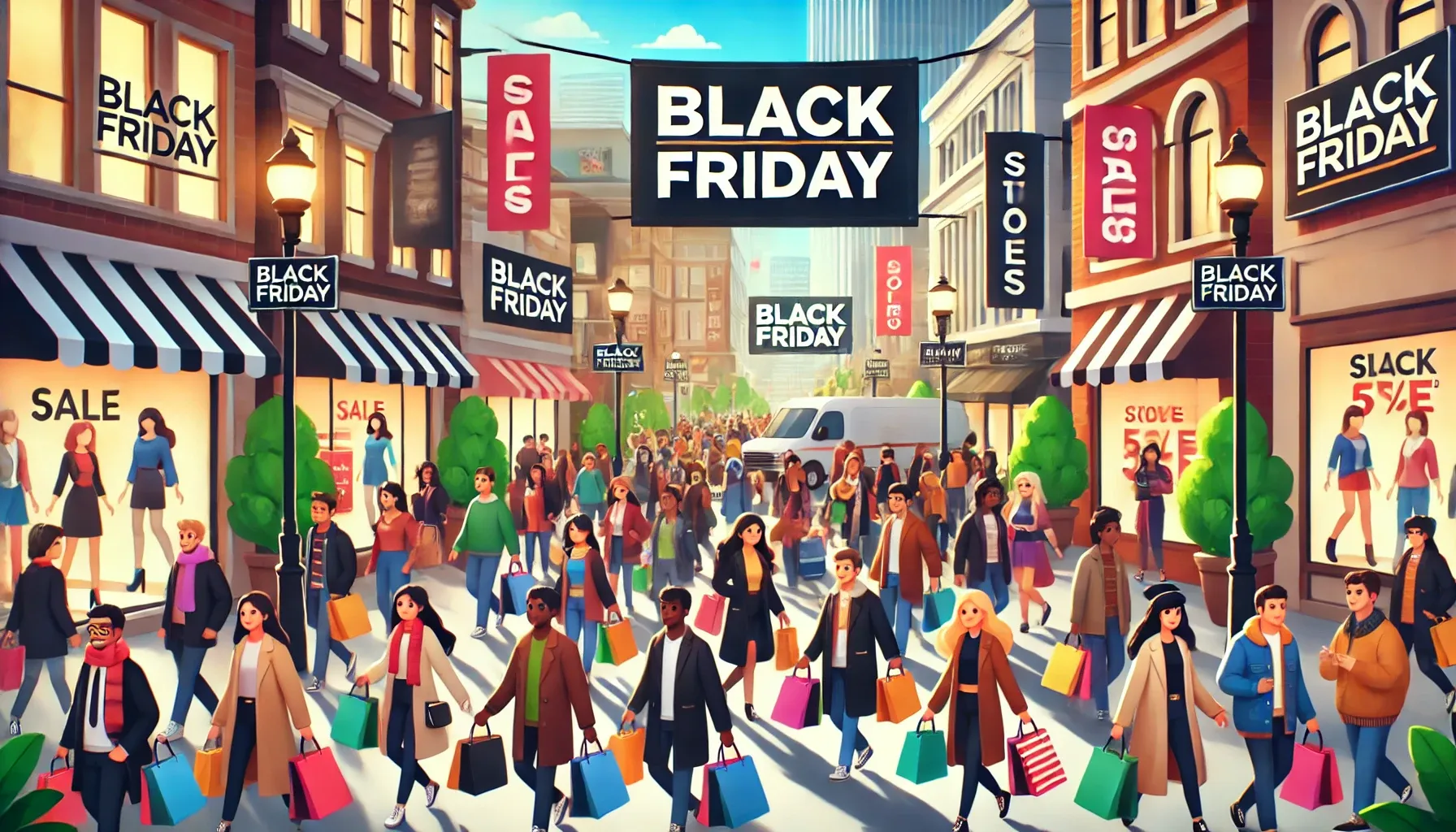Black Friday has become synonymous with massive discounts and frenzied shopping, but its origins are far from what we associate with today’s consumer-centric holiday. From its humble beginnings to its current global status, Black Friday has evolved into one of the most anticipated shopping days of the year. In this article, we will explore the history of Black Friday, the meaning behind its name, and its origins.
Curious about the history of Black Friday? Wondering how it became the ultimate shopping day? Learn all about its origins, meaning, and transformation into a global event.
1. Black Friday History: A Deep Dive into the Shopping Phenomenon
Black Friday’s history stretches back over a century. It didn’t always refer to discounts and consumerism. In fact, the term “Black Friday” was initially used by the police in Philadelphia during the 1950s. Back then, the day after Thanksgiving was marked by massive traffic jams and crowded streets, as shoppers and tourists descended on the city in advance of the big Army-Navy football game.Over the years, retailers started to take advantage of the influx of shoppers, promoting sales and creating a shopping frenzy. It wasn’t until the 1980s that the term “Black Friday” was more commonly associated with retail sales. Retailers began to capitalize on the post-Thanksgiving rush, offering huge discounts, and using the phrase to suggest that stores would move “into the black,” meaning profitability.
Key Moments in Black Friday History:
- 1950s: The term “Black Friday” originated in Philadelphia due to heavy traffic and crowded streets.
- 1980s: Retailers began marketing it as the start of the holiday shopping season with heavy discounts.
- 2000s: The internet introduced Cyber Monday, a new online shopping day, further expanding Black Friday’s reach.
Despite its rocky beginnings, Black Friday has now become one of the most important days for both consumers and businesses, setting the tone for the entire holiday shopping season.
2. What Does Black Friday Mean Today?
In modern times, Black Friday is synonymous with deep discounts and retail chaos. It marks the unofficial beginning of the holiday shopping season in the United States and has grown into a global event. However, the meaning of Black Friday goes beyond just shopping. It’s a symbol of consumer culture at its most intense, where retailers offer huge price cuts in hopes of attracting customers who are eager to grab a deal.The term “Black Friday” refers to the fact that businesses traditionally moved from being “in the red” (losing money) to being “in the black” (profitable) on this day, thanks to increased sales. Many stores open early, offering doorbuster deals that can create long lines and massive crowds.
Key Aspects of Black Friday’s Meaning:
- Discount Frenzy: Major price reductions on a wide range of products.
- Cultural Phenomenon: Not just a shopping day, but a day for people to bond over shared experiences, from lining up outside stores to participating in online flash sales.
- Global Expansion: While originally exclusive to the U.S., Black Friday is now observed in many countries worldwide, with stores offering deals online and in-person.
Whether you’re hunting for a new gadget, clothing, or home goods, Black Friday offers a unique experience that mixes excitement, competition, and, of course, shopping.
3. Where Did Black Friday Originate? Uncovering the Roots
The origins of Black Friday can be traced back to Philadelphia in the 1950s. The term was coined by police officers to describe the chaos and gridlock that occurred the day after Thanksgiving, as shoppers flooded the city in preparation for the Army-Navy football game. Initially, it had no connection to retail or discounts, but rather to the challenges law enforcement faced managing the crowds.It wasn’t until the 1960s and 1970s that retailers began to embrace the term, though with a different spin. They started to use “Black Friday” to reflect their goal of making enough sales to become profitable—moving from “in the red” (losses) to “in the black” (profits).
Important Milestones in Black Friday’s Origin:
- 1950s: Black Friday began in Philadelphia as a term describing traffic and crowd issues.
- 1960s-1970s: Retailers started to use the term for profitability, linking it to sales.
- 1980s: The Black Friday shopping phenomenon began to take off, marking it as the start of the holiday season.
As retailers began to see the potential of the day, Black Friday gradually spread across the United States and became one of the busiest shopping days of the year. Over time, the meaning of Black Friday shifted from being a logistical nightmare to a day of massive consumer opportunity.
Conclusion: The Legacy of Black Friday
Black Friday has come a long way from its origins in the streets of Philadelphia. Today, it’s a global shopping event that marks the beginning of the holiday season for millions of people. While it started as a term describing the chaos caused by shopping and tourism, it has evolved into an essential part of modern retail culture, signifying the rush of bargain hunting and the excitement of the holidays.As we continue to embrace the tradition of Black Friday, one thing remains clear: it’s more than just a day for shopping—it’s a celebration of consumerism and the desire to score great deals.“In the end, we only regret the chances we didn’t take.” – Lewis Carroll






